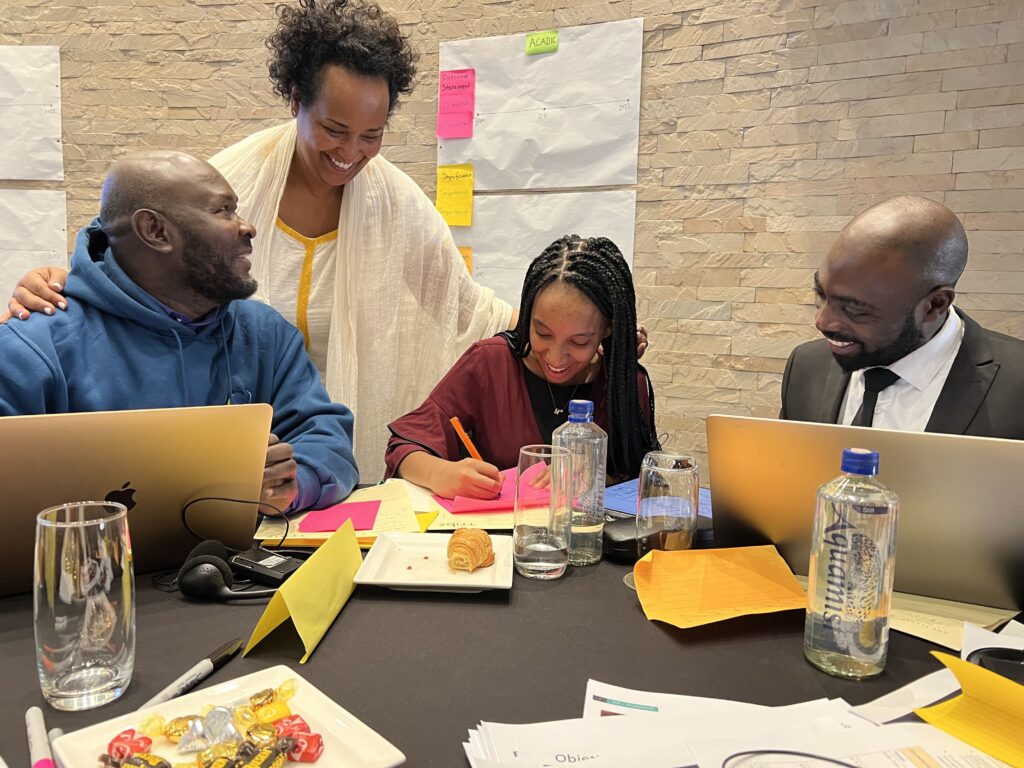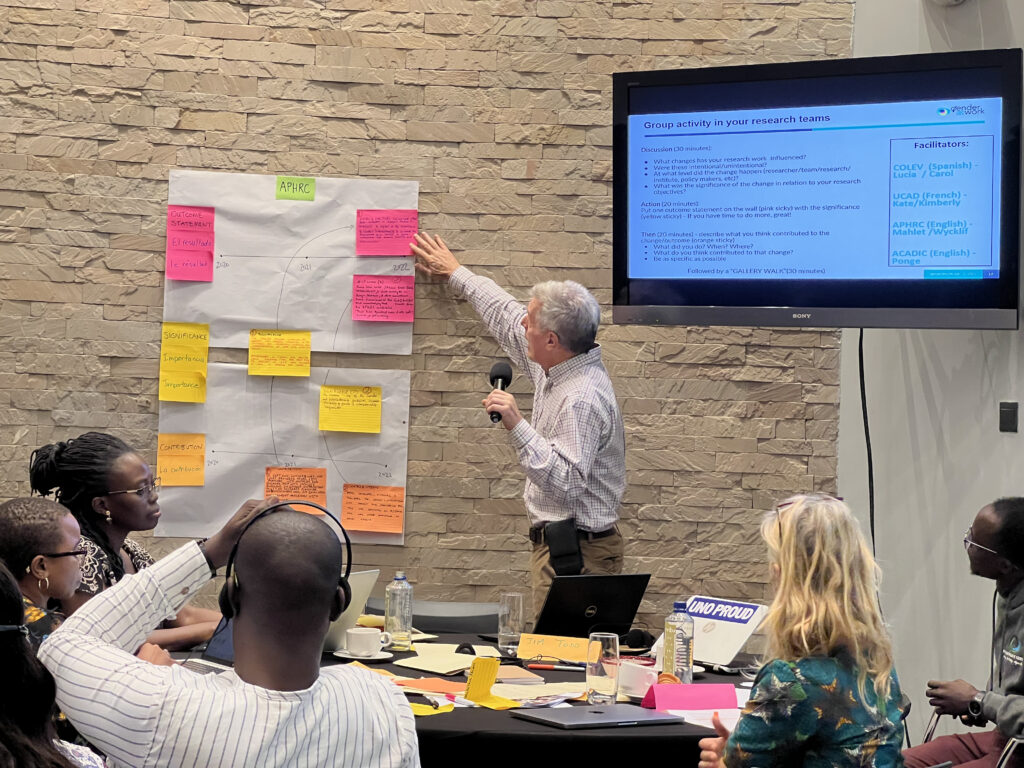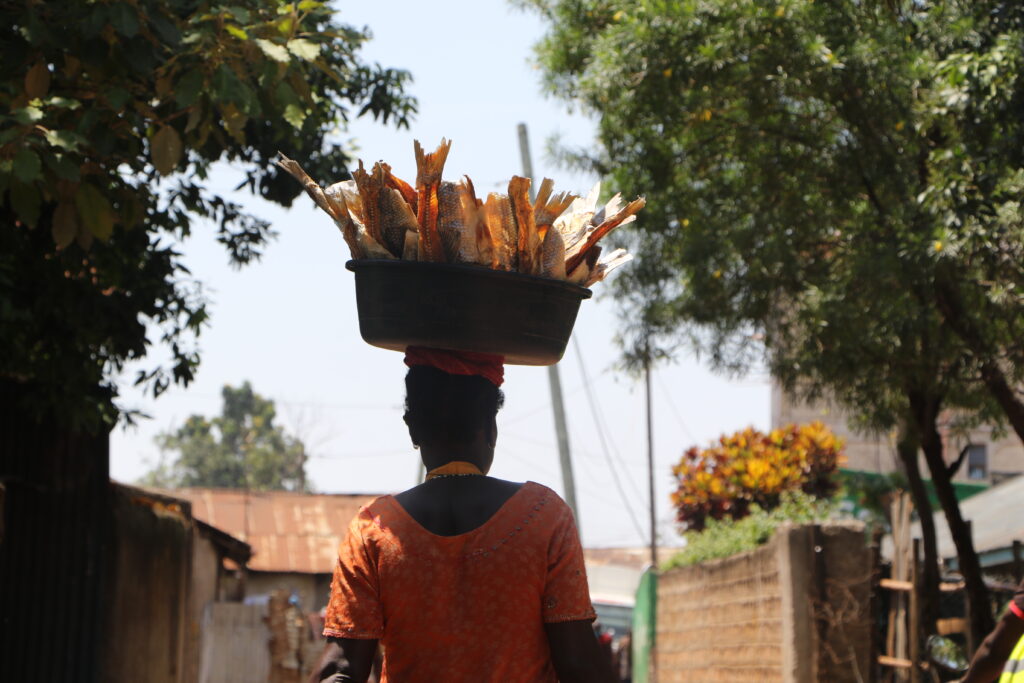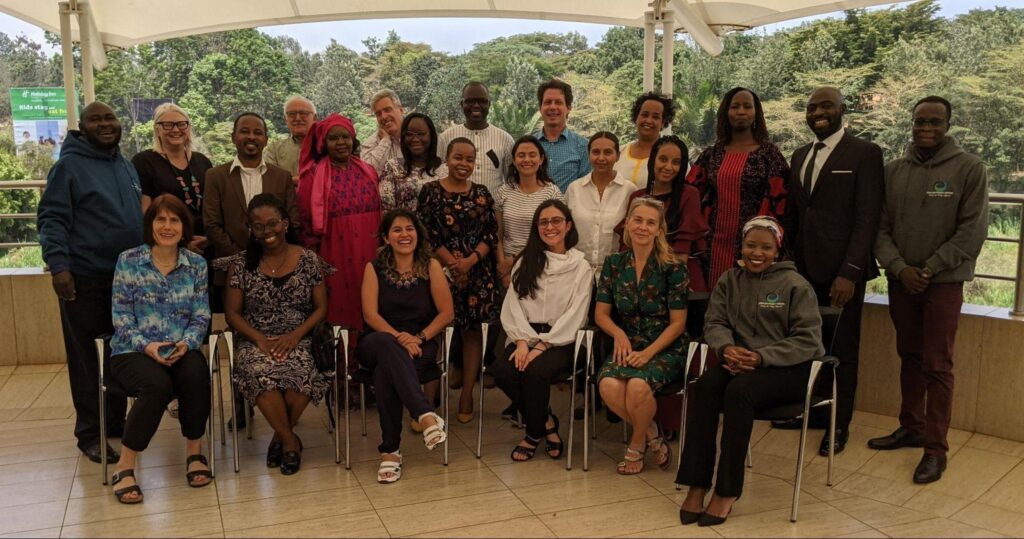A Biostatistician’s Personal Journey through Gender Bias

Sylvia Kiwuwa Muyingo reflects on her early fieldwork collecting health information from HIV-affected communities in Uganda and how this experience motivates her focus on vulnerable communities and appreciation of women’s unpaid caregiving roles.
Why are you talking to a blank screen?

Mahlet Hailemariam shares her experiences of juggling online work, challenged by unreliable internet connection and power blackouts while caring for her mother.
Break Out of Your Silo

Jim Todd questions his own positionality as a white privileged male academic who becomes a mentor to a younger female academic of colour. In narrating this experience, he challenges himself and others to listen and learn from our differences and avoid thinking in ‘silos,’ that perpetuate discrimination and biases within academic and research environments.
Cook, Clean, Plan: A case for more gender-responsive policymaking

Michelle Mbuthia, Communications Officer at the African Population and Health Research Center discusses her personal experience of gender inequality and unfair distribution of domestic labor during the Christmas season in Kenya, and the need for candid discussions and collective efforts to challenge and change traditional gender norms and create a more equal society.
Are women programmed to think less and do more?

Meghan Malaatjie, a Masters in Science, Epidemiology, Candidate, Faculty of Health Science, School of Public Health, University of the Witwatersrand, South Africa reflects on the gender norms she learned in childhood, her personal experiences with these norms, and the impact on her career, and aspirations to address gender inequalities as a public health professional.
Can AI Have Its Cake and Eat It? Reducing Bias in AI Models May Not Always Be Desirable

What are the ethical dilemmas of trying to create unbiased and representative algorithms of women and men impacted by epidemics as a data scientist? Learn what Amelia Taylor has to say about it.
AI Research and COVID: Journeys to Gender Equality and Inclusion

The AI Research and COVID: Journeys to Gender Equality and Inclusion series goes deep into this question through stories of experiences of, and efforts to tackle, gender inequality and exclusions.
Building pride and purpose in passing on skills to the next generation in Tunisia

In 2022, Kadirat launched an intergenerational initiative to enhance the social and economic resilience of impoverished older womxn by sharing their skills in traditional Tunisian handicrafts with younger, unemployed womxn.
Introducing madeleine kennedy-macfoy

The same day in March that the World Health Organisation (WHO) declared the COVID-19 outbreak as a global pandemic, my Gender at Work colleagues and I were in a meeting room in Hyderabad. Oblivious to this fact, we were diligently planning for what promised to be a busy year for the next phase of the Project funded by Oak Foundation. After successfully executing phase 1 of the project, our first larger collective planning session for the second phase was scheduled for April 2020. We drafted a broad agenda to be finalized after our discussion with Civil Society Academy (CSA), co-grantee in this project. Needless to say, things did not go as we had planned.
Reflections on the Transgender Day of Visibility

The same day in March that the World Health Organisation (WHO) declared the COVID-19 outbreak as a global pandemic, my Gender at Work colleagues and I were in a meeting room in Hyderabad. Oblivious to this fact, we were diligently planning for what promised to be a busy year for the next phase of the Project funded by Oak Foundation. After successfully executing phase 1 of the project, our first larger collective planning session for the second phase was scheduled for April 2020. We drafted a broad agenda to be finalized after our discussion with Civil Society Academy (CSA), co-grantee in this project. Needless to say, things did not go as we had planned.
